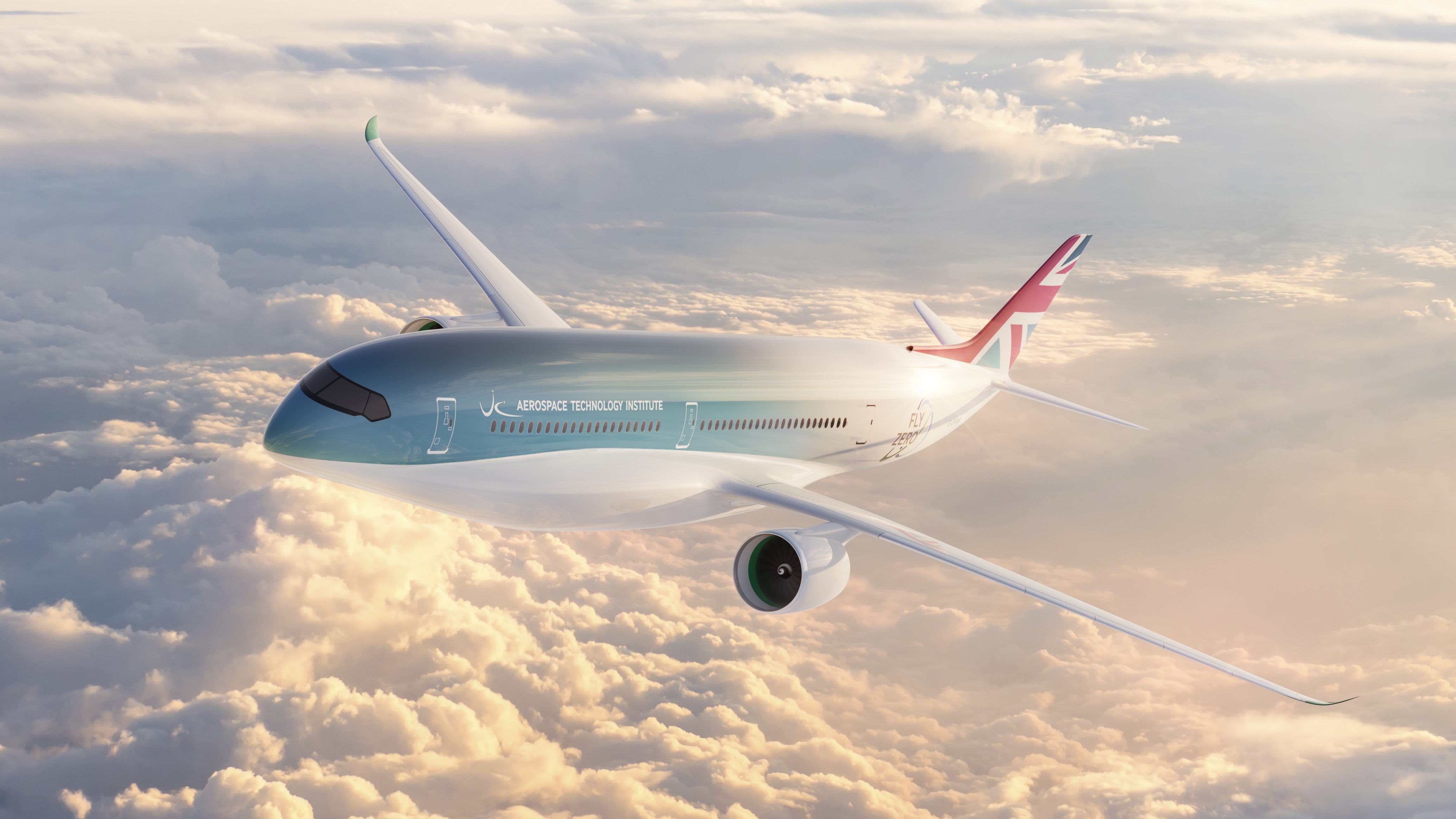Government backs concept for zero-emission hydrogen-powered planes
Technology funded by the UK government will allow people to ‘fly anywhere in the world with no carbon emissions’

Your support helps us to tell the story
From reproductive rights to climate change to Big Tech, The Independent is on the ground when the story is developing. Whether it's investigating the financials of Elon Musk's pro-Trump PAC or producing our latest documentary, 'The A Word', which shines a light on the American women fighting for reproductive rights, we know how important it is to parse out the facts from the messaging.
At such a critical moment in US history, we need reporters on the ground. Your donation allows us to keep sending journalists to speak to both sides of the story.
The Independent is trusted by Americans across the entire political spectrum. And unlike many other quality news outlets, we choose not to lock Americans out of our reporting and analysis with paywalls. We believe quality journalism should be available to everyone, paid for by those who can afford it.
Your support makes all the difference.The government has announced the creation of a new concept aircraft which it says will run on liquid hydrogen and could “one day fly to the other side of the world with zero carbon emissions and just one refuelling stop”.
The £15m project has put forward a design for a mid-size passenger aeroplane which will be able to accommodate 279 passengers and fly halfway around the globe without needing to refuel, or anywhere in the world with one refuelling stop, the government said.
The project, named “FlyZero”, is funded by the government and was unveiled by the Aerospace Technology Institute (ATI) ahead of the fourth meeting of the Jet Zero Council, which is chaired by Transport Secretary Grant Shapps.
The government said: “A zero carbon, non-stop flight could be operated between London and San Francisco, or that passengers could fly around the world from London to Auckland, New Zealand with just one stop, at the same speed and comfort as today’s aircraft.”
In a statement it said the project showcases “the huge potential of liquid hydrogen powered aircraft as the UK drives for a cleaner and greener air travel future”.
The announcement comes after the government announced a major push towards hydrogen earlier this year, claiming the fuel, which currently contributes a minuscule part of the UK’s energy and fuel mix, could account for up to 35 per cent of the UK’s energy consumption by 2050.
The strategy sparked concerns among experts over exactly how the hydrogen required will be made, with the government saying it would support so-called “blue hydrogen”, which requires fossil fuels in its creation. Meanwhile “green hydrogen” can be made wholly using renewable energy.
The work on the new concept aircraft builds on progress already achieved by the Jet Zero Council – a partnership between industry and government with the aim of delivering zero emission transatlantic flight “within a generation”.

Transport Secretary Grant Shapps said: “As we build back greener, it’s crucial that we place sustainability at the heart of the aviation industry’s recovery from Covid-19.
“This pioneering design for a liquid hydrogen powered aircraft, led by a British organisation, brings us one step closer to a future where people can continue to travel and connect but without the carbon footprint.”
According to the ATI the aircraft will have a 54-metre wingspan and will carry two turbofan engines powered by hydrogen combustion.
Liquid hydrogen fuel is stored in cryogenic fuel tanks at around -250C in the aft fuselage and two smaller “cheek” tanks along the forward fuselage. These cheek tanks also serve to keep the aircraft balanced in the air as the fuel burns off.
They said its midsize design would meet the demands of a sector of the market currently served by single aisle and widebody aircraft operations which together account for 93 per cent of aviation’s carbon emissions
Business Secretary Kwasi Kwarteng said: “These designs could define the future of aerospace and aviation. By working with industry, we are showing that truly carbon-free flight could be possible with hydrogen a front-runner to replace conventional fossil fuels.
“Fuelling planes sustainably will enable the public to travel as we do now, but in a way that doesn’t damage the planet. It will not only help us to end our contribution to climate change, but also represents a huge industrial opportunity for the UK.”
The chief executive of the Jet Zero Council, Emma Gilthorpe, said: “The Aerospace Technology Institute’s pioneering research highlights the potential for hydrogen in realising zero-carbon global connectivity.
“This ground-breaking green technology looks set to play a critical role in decarbonising flight and through the work of the Jet Zero Council, the UK aviation sector is exploring all avenues to ensure we protect the benefits of flying for future generations while cutting the carbon cost.”
Join our commenting forum
Join thought-provoking conversations, follow other Independent readers and see their replies
Comments